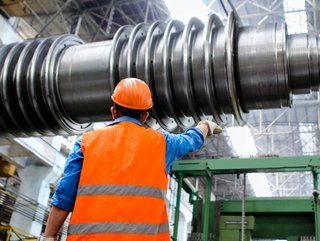Aggreko: How can Manufacturing Embrace Sustainability & ESG?

Environmental, social and governance — the three pillars that make up the sustainability buzzword ESG — guide areas that companies are expected to report in. Consultancy Deloitte's definition states that the goal of ESG is to capture all the non-financial risks and opportunities inherent to a company's day to day activities.
ESG is embodied in any and all industries, but there are certain specific challenges that arise when it comes to applying it in manufacturing. In this sector, it is increasingly apparent that producing products sustainably is no longer an option or benefit but essential, both when it comes to maintaining competitiveness in respective markets and to ensure any future risk is lowered to a minimum.
Benefits of third parties ensuring manufacturing hits ESG targets
Ruth Martin, Manufacturing Sector Manager for Aggreko — a global leader in temporary power, temperature control and energy solutions — in the UK and Ireland, is calling attention to how leveraging third-party expertise can help businesses realise these aspirations.
This comes following the release of a recent report from Make UK and Lloyds Bank, which indicates that 77% of firms are now receiving ESG requests from their customers. The number of firms setting ESG targets has increased by almost half, with two-thirds of manufacturers doing so since 2021.
However, with the report also indicating that less than half of manufacturers have the resources required to meet ESG requirements, Martin is calling attention to how leveraging third-party expertise can help businesses realise these aspirations.
“It’s fantastic to see that so many manufacturers are beginning to take a serious stance on sustainability, with firm ESG targets now in place,” she said. “That said, achieving these will be another challenge unto itself, not least with the ongoing challenges that are plaguing the sector at present.
“Supply chain delays, skill shortages, and production difficulties are all ongoing challenges that are at loggerheads with business’ ESG aspirations, and are preventing them from realising these goals. However, there are viable routes forward if manufacturers look to alternative procurement strategies.”
With many manufacturers continuing to use ageing, inefficient equipment — having a negative impact on carbon footprint, third parties can help bring manufacturers up to speed, or, better still, ahead of the curve to mitigate any challenges that can and will arise.
Manufacturing’s ESG challenges
According to Martin and Aggreko, capex limitations, supply chain delays and a lack of in-house skills are all commonly cited as barriers to investment in newer technology.
Martin herself is a firm believer that outsourcing equipment from a specialist has a significant role to play in helping businesses realise their ESG goals. This, she says, allows manufacturers to access the latest, high-efficiency equipment despite these challenges.
Shining a light on this, Martin adds that this is the best time to consider alternative technologies to help cut on-site emissions. Walking the walk as well as talking the talk, as part of Aggreko’s recently launched sustainability framework Energising Change, the company is making a series of major investments in greener solutions such as battery energy storage systems (BESS), in order to ensure that the breadth of the industry has access to cleaner energy.
“There is often a misconception that sustainability and profitability are mutually exclusive, but the reality couldn’t be further from the truth,” she said. “For example, a battery hybrid system with a Stage-V generator running on hydrotreated vegetable oil (HVO) can offer huge reductions in NOx, CO2, particulate matter and fuel consumption, which will not only help the business work towards its ESG targets, but also offer tangible cost savings.
“For any business keen to put their ESG targets into practice, but not sure where to start, I’d strongly encourage engaging with a specialist – you might just be surprised at what you can achieve.”
Is ESG in Manufacturing here to stay?
With a plethora of global challenges facing our world today — including climate change, transitioning to a more circular economy, inequality and balancing the needs of the economy with that of society — the growing demand for industry actions to make meaningful and impactful change is driven by the pillars that make ESG.
Deloitte has noted how an increasing number of investors are incorporating ESG elements into their investment decision making process, making ESG increasingly important from the perspective of securing capital, both debt and equity.
According to Menzies, there are four main benefits to manufacturing businesses embedding ESG practices into its operations. They are:
- Savings: Energy efficiencies can improve ESG performance and create savings that can be reinvested
- Innovation: Strong ESG strategies have been identified as enablers of emerging business opportunities
- Improved cash flow and competitiveness: Investment in R&D, for example, can boast financial rewards including the above
- Future-proofing an organisation: Embedding an ESG strategy gives organisations the best opportunity to capitalise on competitive advantages while creating efficiencies that deliver long-term savings that can be reinvested
*******************
Make sure you check out the latest edition of Energy Digital Magazine and also sign up to our global conference series - Sustainability LIVE 2024.
*******************
Energy Digital is a BizClik brand.






